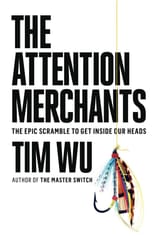Search Results
6/22/2025, 8:38:24 PM
Bennett loved to gain attention for his paper by hurling insults and starting fights. Once he managed in a single issue to insult seven rival papers and their editors. He was perhaps the media’s first bona fide “troll.” As with contemporary trolls, Bennett’s insults were not clever. He attacked the older, 6-cent Courier and Herald and its portly editor, respectively, as “bloated” and “big-bellied.” The Sun’s editors he condemned as the “garbage of society,” and the paper as “too indecent, too immoral for any respectable person to touch, or any family to take in.” Taking notice of its support for the complete abolition of slavery, he blasted it as a “decrepit, dying penny paper, owned and controlled by a set of woolly-headed and thick-lipped Negroes.”
As politicians, professional wrestlers, and rappers know well,
>trash-talking remains an effective way of getting attention,
and it worked well for Bennett.
The race was on to see which paper—and which kind of appeal—would harvest the most attention in New York.
We can observe a very basic and perhaps eternal dynamic of the attention industries.
The attention merchant’s basic modus operandi:
>draw attention with apparently free stuff and then resell it.
But a consequence of that model is
>a total dependence on gaining and holding attention.
This means that under competition, the race will naturally run to the bottom;
>attention will almost invariably gravitate to the more garish, lurid, outrageous alternative,
whatever stimulus may more likely engage what cognitive scientists call our “automatic” attention as opposed to our “controlled” attention, the kind we direct with intent.
The race to a bottomless bottom, appealing to what one might call the audience’s baser instincts, poses a fundamental, continual dilemma for the attention merchant—
>just how far will he go to get his harvest?
As politicians, professional wrestlers, and rappers know well,
>trash-talking remains an effective way of getting attention,
and it worked well for Bennett.
The race was on to see which paper—and which kind of appeal—would harvest the most attention in New York.
We can observe a very basic and perhaps eternal dynamic of the attention industries.
The attention merchant’s basic modus operandi:
>draw attention with apparently free stuff and then resell it.
But a consequence of that model is
>a total dependence on gaining and holding attention.
This means that under competition, the race will naturally run to the bottom;
>attention will almost invariably gravitate to the more garish, lurid, outrageous alternative,
whatever stimulus may more likely engage what cognitive scientists call our “automatic” attention as opposed to our “controlled” attention, the kind we direct with intent.
The race to a bottomless bottom, appealing to what one might call the audience’s baser instincts, poses a fundamental, continual dilemma for the attention merchant—
>just how far will he go to get his harvest?
6/21/2025, 11:11:39 PM
>>936076918
i've realized many times before that when i force myself to read books, internet comments become much less interesting
i've realized many times before that when i force myself to read books, internet comments become much less interesting
Page 1
